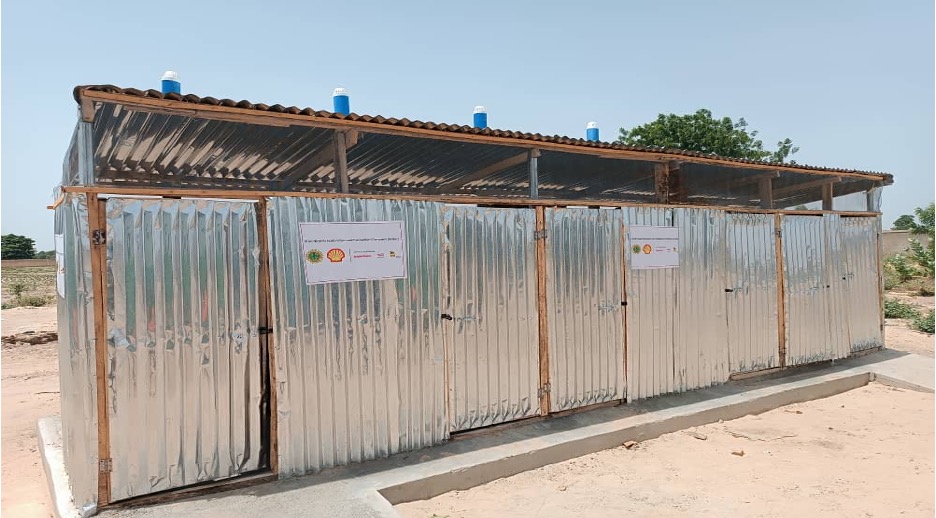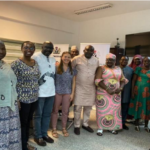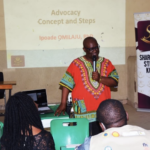
The lack of adequate sanitation facilities can create problems for citizens, such as bacterial infection or diarrhea. Over 16,800 children under the age of five die from diarrhea each year. As part of FHI 360 emergency response, the WASH sector under the IHANN project expanded its area of coverage beyond the IDP camp to the host community in Banki. WASH intervention, including latrines, boreholes, and water points, are being installed. This will profoundly impact the health and well-being of the affected populations, particularly women and girls.
A female-headed household beneficiary shared how her immediate family and community benefit from the newly constructed latrine.
“My name is Halima Umar. I lost my husband because of the insurgency in Minawawu community in Cameroon. Since then, I have been solely responsible for the well-being of my family. I engaged in menial jobs to fend for my children; it has been a terrible experience. I returned to Banki in 2021 and lived in the IDP camp, but due to the influx of refugees, and limited facilities like clean water, good toilets, and shelter, we had to move into the community.” Halima recounts.
Many newly displaced persons from other parts of Bama LGA, and returnees from Cameroon in the Banki IDP camp, moved into Wajere host community to live a more dignified life. However, latrines and other facilities were unavailable due to no funding. Where available, they were scarce and overstretched.
“We usually defecate in open areas. No latrine was within our reach, so we had to defecate in the bushes at night. We knew it was wrong, but we had no option. We knew our actions could lead to sickness/diseases in the camp and community, but that was the only way to survive. When FHI 360 team came to us with the idea of a household latrine, it was a perfect plan as we were approaching the rainy season. In no time, the latrines were constructed at various points. The entire community is happy, and we are grateful to FHI 360. We hope more of this could be replicated in various communities.” Halima Umar expresses.
The increasing uptake and utilization of improved sanitation facilities decrease the risks of diseases and outbreaks, especially impacting children under five. FHI 360, through support from USAID/BHA, is at the forefront of improving the lives of conflict-affected populations in IDP camps and host communities through integrated WASH, health, Nutrition, and Protection Services.



